The Martian Chronicles
The Martian Chronicles by Ray Bradbury is a classic science fiction novel that chronicles the colonization and settlement of Mars. Set in a future where humanity's technological advancements yield both wonder and peril, the book intertwines tales of exploration with some dystopian undercurrents, including themes of unchecked progress, societal concerns, and the unintended consequences of human actions.
This is a presentation copy inscribed by Bradbury to Julius "Julie" Schwartz: "For / Julie / with my / great affection / and appreciation / of your friendship / all down the years / from / Ray Bradbury / May, 1950." The inscribee, Julius "Julie" Schwartz, was Bradbury's first literary agent and good friend. Schwartz represented many notable science fiction authors, including Bradbury, Alfred Bester, Stanley G. Weinbaum, Robert Bloch, and H. P. Lovecraft. Schwartz was affectionately known as "Julie" to all of his friends.
Hardcover. First Edition, First Printing. Octavo, cloth. Garden City, NY: Doubleday & Company, 1950. Pringle, Science Fiction: The 100 Best Novels (3). #10583.
Tanning to spine and edges of boards, else nearly fine in very good+ clipped dust jacket that has minor wear, mostly at folds and slight vertical crease along spine. An attractive copy with a great early inscription.

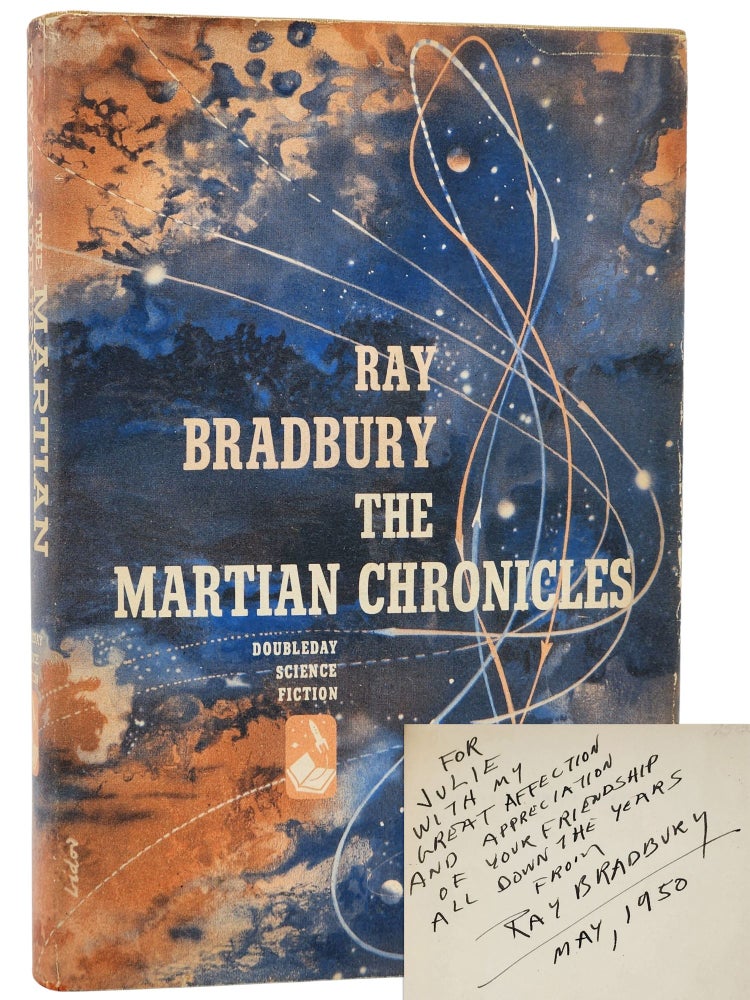
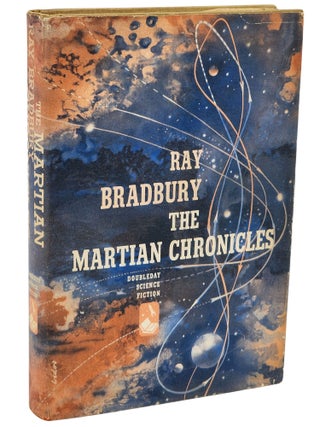



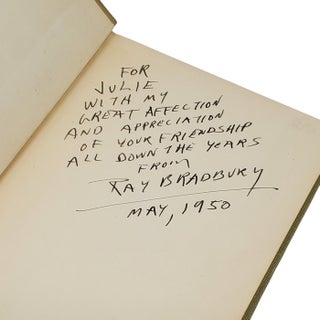
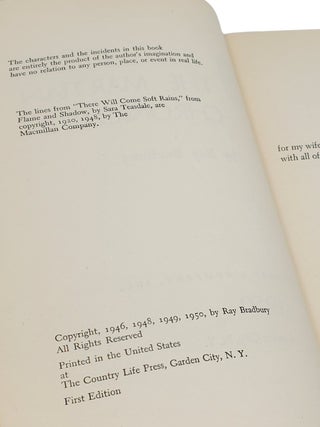
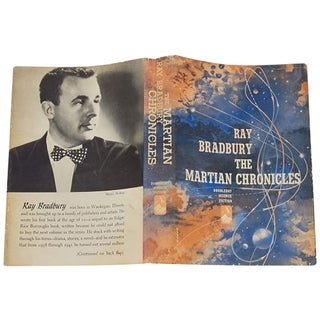
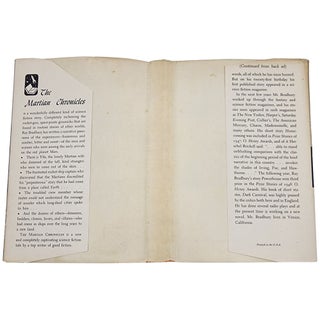
The Martian Chronicles is a classic science fiction novel by Ray Bradbury, originally published in 1950 as an interconnected collection of short stories. Transporting readers from the post-World War II American society to a technologically advanced future, the book portrays the intricate balance between humanity's potential for creation and destruction.
Throughout the chronicle, the narrative weaves tales of colonization on Mars, where humans grapple with the consequences of their actions. The juxtaposition of miraculous advancements and devastating outcomes underscores the complexity of human nature and ambition.
Amid the exploration of human emotions and desires, the novel also delves into themes with undertones of dystopia. It scrutinizes the unchecked progression of technology, the darker facets of human behavior, and the potential dangers of militarism, science, and unchecked prosperity that could lead to a global nuclear catastrophe ("There Will Come Soft Rains" and "The Million-Year Picnic").
As readers journey through the chronicles, they encounter apocalyptic scenarios of Martian and human civilizations brought to ruin, all instigated by humanity itself. Themes emerge that reflect concerns about the values and trajectory of post-war America, touching on depopulation with overtones of genocide ("The Third Expedition," "—And the Moon Be Still as Bright," and "The Musicians"), racial oppression and exploitation ("Way in the Middle of the Air"), historical ignorance, skepticism towards religion, and the chilling implications of censorship and conformity ("Usher II").
Recognized with a Pulitzer Prize Special Citation in 2007, The Martian Chronicles is celebrated as one of Ray Bradbury's "masterworks that readers carry with them over a lifetime." Its profound ability to provoke contemplation about human nature, society, and the unforeseen ramifications of progress solidifies its position as an enduring classic in both science fiction and literature as a whole.